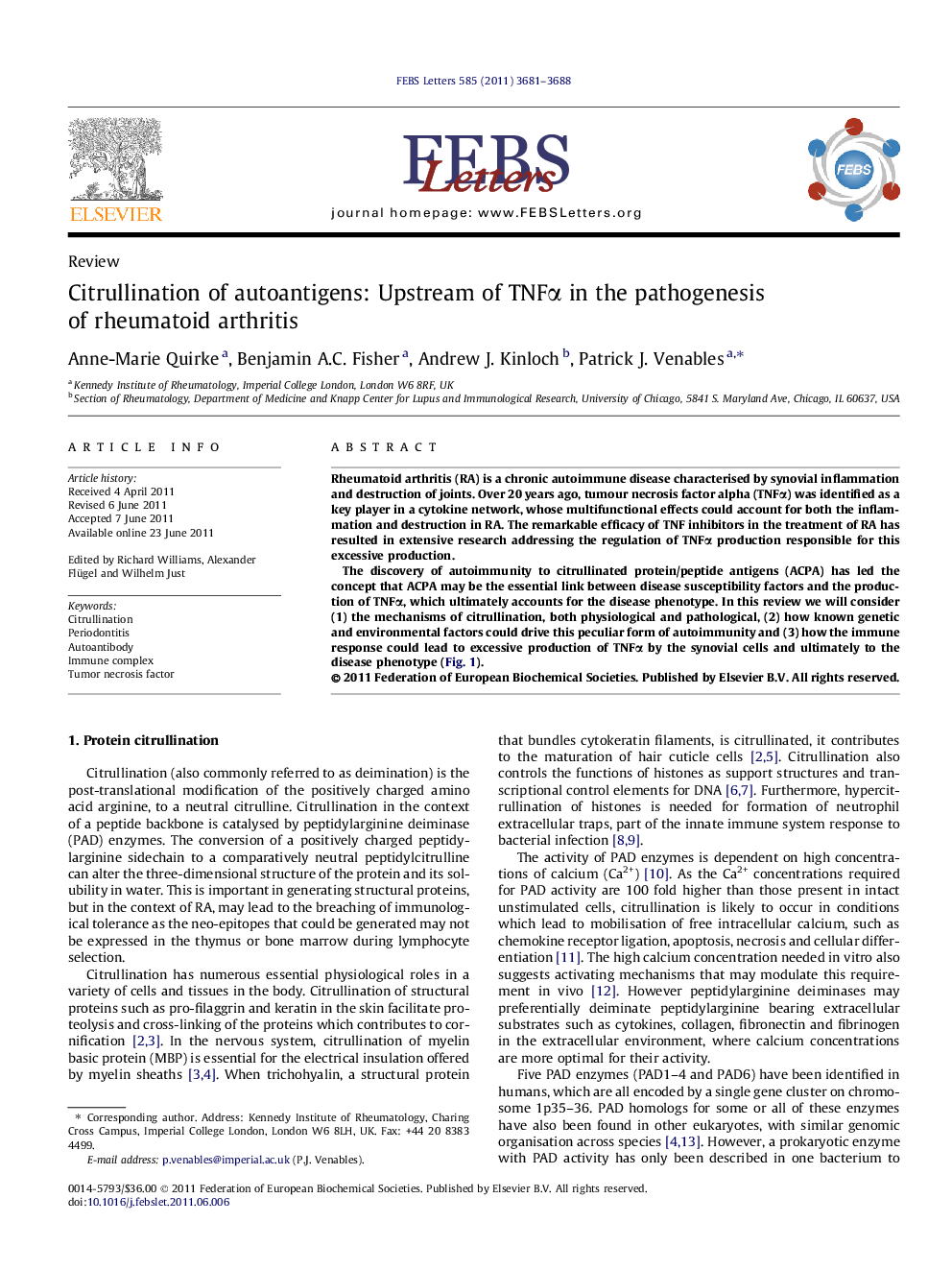| Article ID | Journal | Published Year | Pages | File Type |
|---|---|---|---|---|
| 10871776 | FEBS Letters | 2011 | 8 Pages |
Abstract
The discovery of autoimmunity to citrullinated protein/peptide antigens (ACPA) has led the concept that ACPA may be the essential link between disease susceptibility factors and the production of TNFα, which ultimately accounts for the disease phenotype. In this review we will consider (1) the mechanisms of citrullination, both physiological and pathological, (2) how known genetic and environmental factors could drive this peculiar form of autoimmunity and (3) how the immune response could lead to excessive production of TNFα by the synovial cells and ultimately to the disease phenotype (Fig. 1).
Related Topics
Life Sciences
Agricultural and Biological Sciences
Plant Science
Authors
Anne-Marie Quirke, Benjamin A.C. Fisher, Andrew J. Kinloch, Patrick J. Venables,
